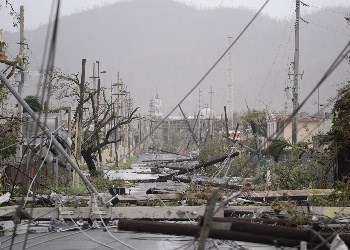Bird flu ‘of concern’ in Caribbean region
NASSAU, Bahamas – The impact of the Avian bird flu on the Caribbean region “is of major concern,” Pan American Health Organisation (PAHO) representative, Lynda Campbell said.
“We are concerned about the disease in birds because chicken is the key source of protein for people in the Caribbean region,” said Ms Campbell who represents the Bahamas and Turks and Caicos.
“We are also faced with the possibility that the virus that causes bird flu could mutate to a form that is easily transmissible from human to human,” she added. “This is a major concern.”
Ms Campbell was speaking Monday during a three-day seminar in ‘Risk Communication Specific to Avian and Pandemic Influenza.’
It was organized by the Ministry of Health and National Insurance in collaboration with the Pan American Health Organisation (PAHO).
Featured presenters included psychiatrist Dr Jody Lanard PAHO/WHO’s risk communications consultant, and disease prevention and control adviser Dr Yitades Gebre.
Attending were Cabinet Ministers Dr Bernard J Nottage (Health and national Insurance), Obie Wilchcombe (Tourism), Alfred Grey (Consumer Affairs and Local Government), and Leslie Miller (Agriculture), and representatives from the Turks and Caicos, government departments, private enterprise and the media.
Ms Campbell warned that the world is faced with a type of bird flu virus that has spread from Asia, the Middle East, Europe and Africa “with the reasonable prospect that the disease will continue to spread to the Americas including the Caribbean.”
Since 2003, she said, affected areas have seen over 4000 separate outbreaks of the disease in poultry and 208 human cases resulting in 115 deaths.
“The evidence shows that although it is possible for humans to get bird flu from birds,” she said, “it is difficult and requires very close contact with affected birds.
“Consequently the risk to humans is greater in persons like poultry producers, farmers and lab personnel than it is to the general public.”
While it is “quite difficult” for humans to get this disease, she said, poultry “is very susceptible to the virus.”
The result in the affected region has been the lost of millions of birds which has had “a significant impact” on the economies of several countries and the lives of many people, she said.
Moreover, there has been “dramatic consumer responses”, an increased number of trade bans, and sharp reductions in the price of chicken.
Although the virus has not mutated to a form easily transmissible between humans, there has been the view that the focus on its possibility is unwarranted, she noted.


